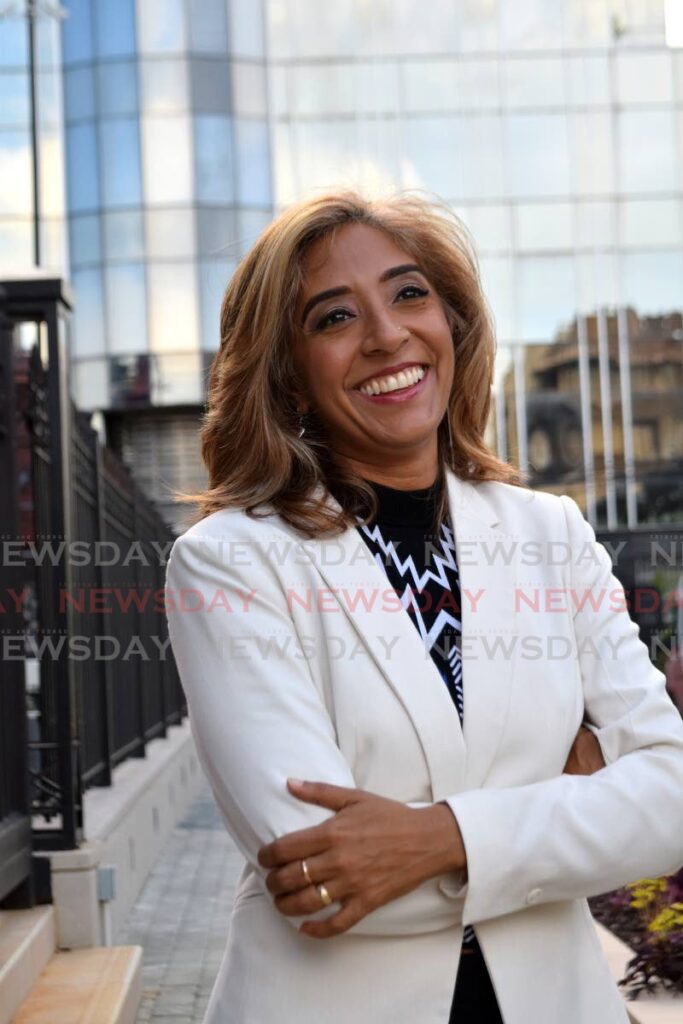Give us back our beaches

GABRIELLE HOSEIN
IT’S SURREAL that a nation of islanders would cut people off from our oceans and seas for so long. It says something about how decision-makers view nature, turning our back to it in the vulgar way that MovieTowne was built, as if our coasts do not matter.
It’s surreal that people are already drinking on pavements outside bars, whether vaccinated or not. They are travelling together on public transportation, whether vaccinated or not, and working together in offices that haven’t imposed mandatory immunisation policies. They are interacting in markets, malls, stores, churches, schools and brothels. Yet the beaches remain closed.
For many, the ocean is essential to mental, physical and psychological health. For children, it’s a source of great stress relief and energy release, particularly amidst such an isolated and overwhelming experience over almost two years.
Those with access to private beaches and small coves reachable by boat can still find a way to get into the water, providing opportunity for the wealthy to rejuvenate. For poor people or those who lost income and can’t afford restaurants, beaches are an affordable place to go, carrying their pot of food cooked at home. They are also a place where they can go with their children under 12, sit, rest and have family time.
I know the covid19 numbers and deaths are high and vaccination rates are low, but the State’s approach to the pandemic has been contradictory and remains so. Remember when the borders were closed and it took contacts, prayers, pleading in the papers or lottery-level hope to get back in? Stuart Young himself had to provide permission, and his decision-making appeared altogether unsystematic, biased and unpredictable for months.
It’s still not clear why the state of emergency was ended when it was, with numbers so high, conveniently in time for campaigning.
The State’s approach has also been one that completely ignored the burden of care put on families with children now at home doing online school or unable to access school at all, and the increased levels of stress that has caused. It’s not just hunger or violence or child abuse that has increased, it’s sheer psychological burnout for adults and children, and I would argue particularly for women.
If your household has managed well, perhaps with a large private yard or access to a pool or a nearby open field or the chance to fly out, good for you, but there are children who are quietly falling apart.
I watched a little boy riding his bicycle around and around an old car parked in his small yard. There was maybe three feet of space for him to manoeuvre as he circled. His yard off the main road was concrete. The main road was concrete. He seemed like those animals in the zoo pacing in a cage. I think of the children living in the concrete jungles of our urban plannings, ending up spending too much time on their phones, and getting too little time outdoors or in green spaces so their chemistry can balance and their behaviour improve.
We’ve put a ton of effort into keeping my 11-year-old psychologically stable at those moments when she seems to feel trapped inside, insisting on walks, bike rides and time outside. It’s the best we can do, but it’s not the same. She grew up exploring beaches all along the North Coast, returning home with her heart full of oxygen and sunlight, impressions of blue sky and green mountains reflected in her eyes. School is now closed and, as with the middle of the year, she’s desperate for the ocean, and all it relieves and heals.
Across the Caribbean, beaches are open. What do Barbados, Grenada, Jamaica and St Lucia know that we don’t? Their beaches may have opened for tourism, but is their evidence significant enough for us to keep ours closed?
The data suggests that transmissions primarily occur indoors, that physical spacing between groups at the beach, having limits on the number of people who can gather in groups, maintaining masks when not swimming, prohibiting fetes and closing beaches earlier are approaches that find a balance. Jamaica put in a curfew: Monday-Saturday: 6 am- 4 pm and Sundays: 6 am-2 pm.
We opened bars, of all things, because of jobs, lobbying and a widespread culture of drinking to the point of near-alcoholism.
Can we open the beaches, before school starts back, on the best model of our Caribbean neighbours, for the mental health of children?
Diary of a mothering worker
Entry 445
motheringworker@gmail.com

Comments
"Give us back our beaches"